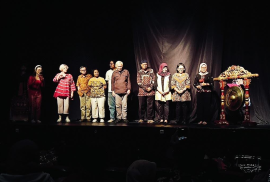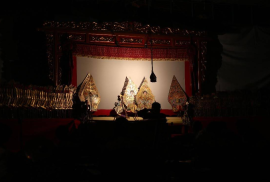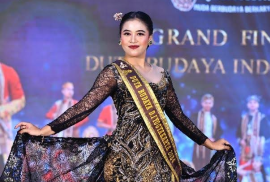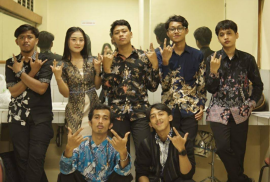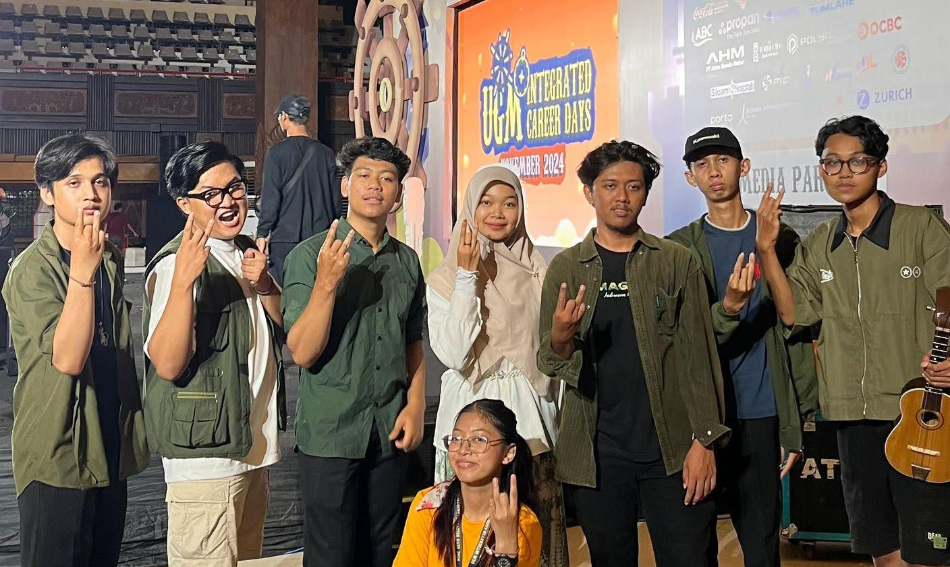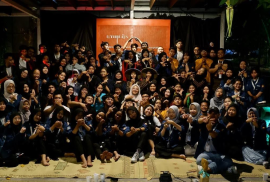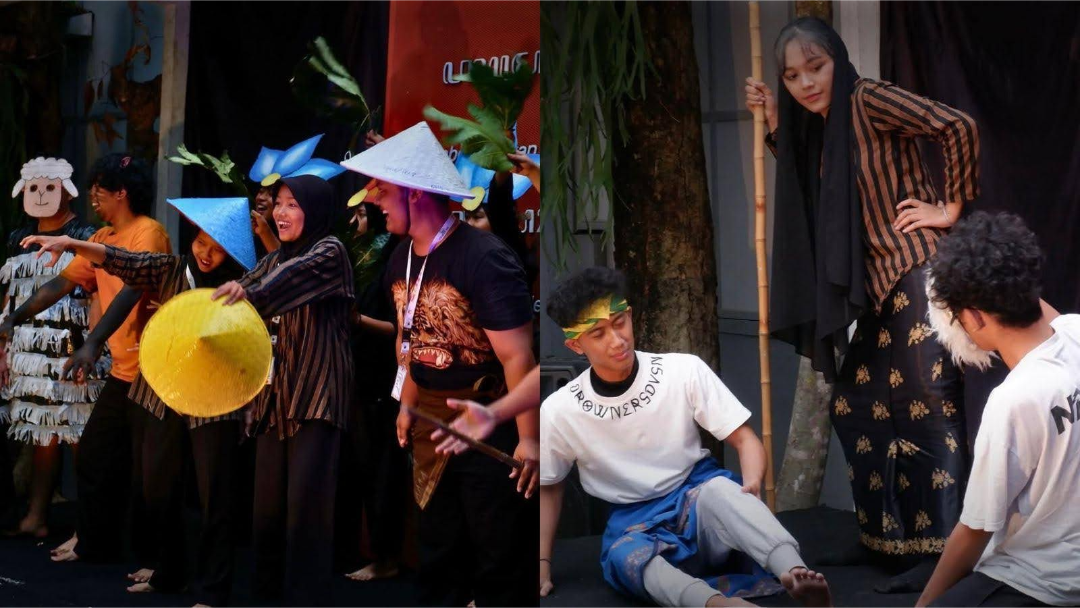Rafael Raga Budi Panuntun, a student of the Javanese Language, Literature and Culture Study Program class of 2021, successfully became the scriptwriter and director of a theater entitled “Ngathabagama” with the theme Panji which brought Sleman Regency to win the overall champion and best presenter in the 2024 DIY Provincial Theater Festival. Ngathabagama Theater was nominated as the best presenter, best director, best music director, best artistic director, best ensemble, and brought home the rotating trophy of the DIY Theater Festival.

Quoted from instagram account @rafaelragabp
Raga’s success should be an inspiration, in the midst of his academic busyness, Raga can still work and create a beautiful theater and become the best presenter. The process carried out by Raga is quite long, starting from initiating ideas, writing scripts, and so on. Ngathabagama Theater is a theater that was formed by accident, starting from a theater festival at the Sleman Regency level. Kapanewon Minggir has been the champion in Sleman Regency for 2 consecutive years. In 2023, Kapanewon Minggir presented a theater titled “Hagbala” with the theme of Yogyakarta, History and, Romanticism which was also written and directed by Rafael Raga Budi Panuntun, even 50% of this theater is self-made, starting from production, music, artistic, fashion, and others. Hagbala succeeded in winning the 1st place at the Sleman Regency level and the 3rd place at the DIY Province level.
After successfully becoming a champion with Hagbala in 2023. In 2024, Rafael Raga and Kapanewon Minggir advance to participate in the theater festival again in Sleman Regency. Raising Ngathabagama as the title of the presented theater, again succeeded in becoming the champion. Raga revealed that he wrote his script and ideas during KKN (Real Work Lecture) activities. This shows that with all his busyness, Raga was able to create an extraordinary work that was unexpectedly led him to become the best presenter in the 2024 DIY Theater Festival.
The theme of the 2024 DIY Theater Festival refers to the technical instructions from the DIY Cultural Service (Kundha Kabudayan) which is Panji. Panji’s romance and love with Sekartaji are brought into a theater. However, Raga revealed that he wanted Ngathabagama to be taken from another point of view, namely that the story of Panji and Sekartaji who always got a blessing from a nature or can be called the absolute destiny of God. Raga did research and found that Panji and Sekartaji always get a destiny that separates them, whether separated by time, someone, or circumstances.
The script that Raga wrote did not escape Raga’s consultation with the lecturer of the Javanese Language, Literature, and Culture Study Program, Dr. Rudy Wiratama, S.I.P., M.A., an academic and Wayang Gedhog practitioner who uses the theme of Panji and Sekartaji. With the conversation that Raga did with Dr. Rudy Wiratama, S.I.P., M.A., will strengthen the story and can be held accountable for its validation.
After doing a lot of research and discussion, Raga found that Panji and Sekartaji are always separated by fate, one of them is separated by the god Bathara Kala which is represented as Kala is time. Raga got an unusual idea, which is working on the Panji theater this time by showing Bathari Durga or the mother of Bathara Kala who gives wiradat to Panji and Sekartaji and separates the two of them to get a stronger essence.
Raga crossed between Wayang Gedhog and Wayang Purwa to find out the weakness of Bathari Durga. The weakness of Bathari Durga is Semar or Sang Hyang Ismaya, Semar can defeat Bathari Durha by reciting the way of the guardian, to prevent further evil. Caraka walik is a Javanese script (Hanacaraka) that is read backwards, believed to be able to ward off bad things, Raga took the title of the theater this time from the first line of caraka walik, Ngathabagama.
Many Javanese chronicles, both fiction and non-fiction, place the central story of Panji and Sekartaji. Raga’s knowledge of various kinds of Javanese literary works made him confident to write this script. The story of Panji and Sekartaji has not only become the wealth of the Nusantara but for the whole of Southeast Asia. There are also many essences of Wayang Purwa that are raised for Ngathabagama theater, such as Semar, Bathari Durga, the role of the gods, the urning of the nature of the wiradat, a romance story that has many relationships with literary works, and local wisdom such as the use of caraka walik which is widely known to expel or restore bad circumstances.
Not only the presentation of Ngathabagama theater, Raga also created an original soundtrack for Ngathabagama with the title “Kalasmara” which supports the dialogue between Panji and Sekartaji. This Kalasmara was created by Raga to archive theatrical presentations that have been carried out so that they still have a different essence. Raga added that he did not want a stage to only end in 30 minutes to 1 hour on stage, but to have another form of work that can forever be a memory and archive in the future.
The story of Raga in the creation of performing arts based on Javanese literary works is expected to be able to inspire students of the Javanese Language, Literature, and Culture Study Program to be able to create and utilize the knowledge that has been obtained. Many works of art can be created equipped with knowledge from the Javanese Language, Literature, and Culture Study Program.

